In observing seasonal population data and how it relates to mapping the Antarctic territory, one can realize two distinct settlement typologies. One of them is the tourist hub of the Antarctic Peninsula, where tourist ships populate during the summer and stay off-land. The other typology is the eastern coastline, where scientific researchers from all over the world live throughout the year. There are also clusters of bases within these typologies, where possible synergies can occur. These observations led us to overlay these typologies, clusters, and dis-buffers to extract our the diagram of Antarctica:
Map Overlay:
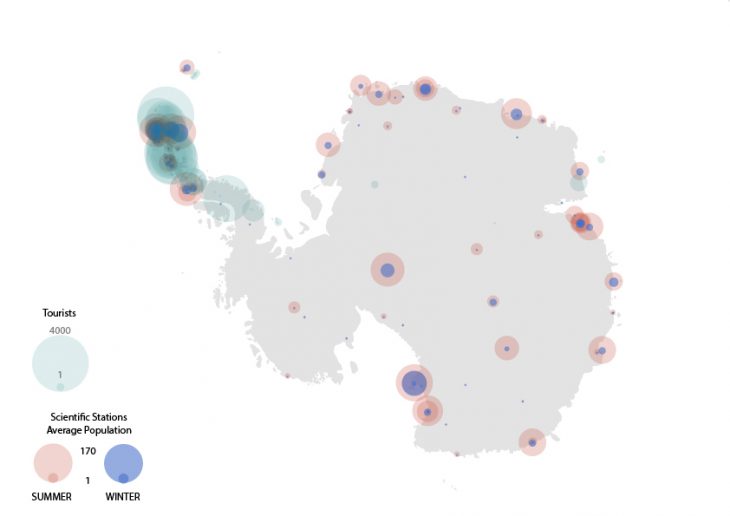
Diagram:
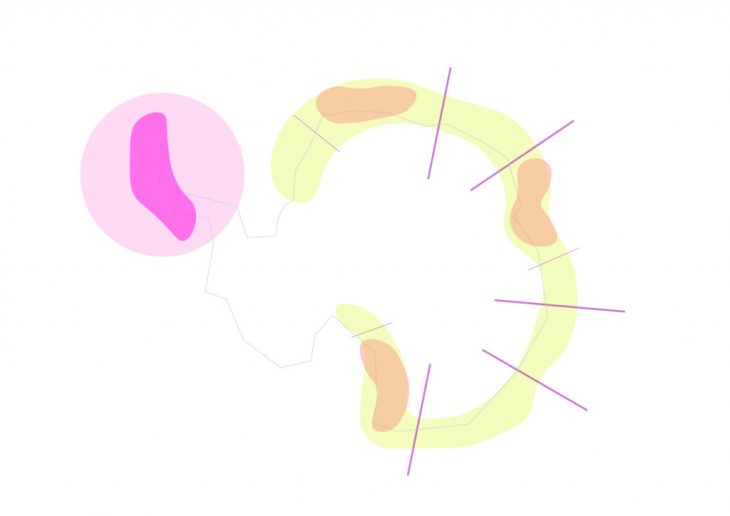
Abstract Diagram:
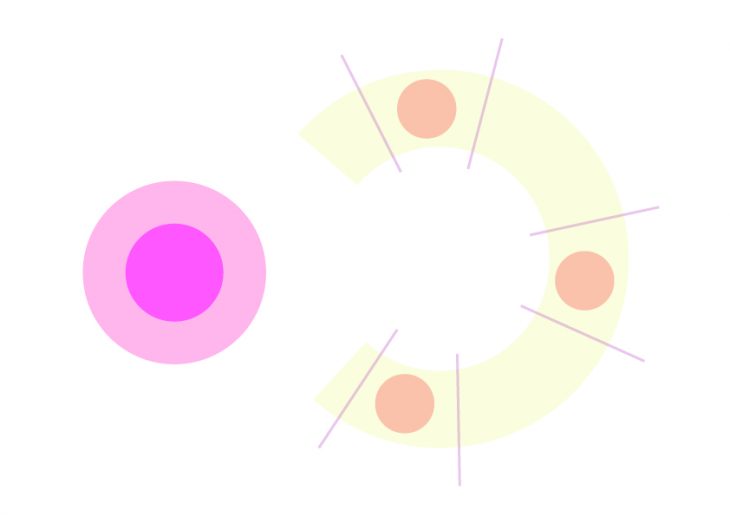
From the diagram, the next step was to conceptualize these spatial observations. Our group came up with the concept of Antarctic HUB. These are central community leisure or science hubs with the purpose to connect scientists and tourists with each other. The HUBs are located in a centralized point within the clusters and sub-clusters of the corresponding typologies:
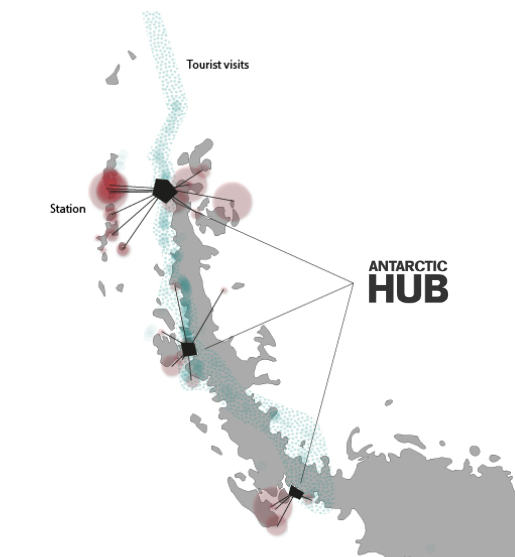
The goal of these spaces is to create more of a community within the territory, as it is now a fragmented and isolating experience for inhabitants. Knowing that we want to create a symbiotic culture, this led us to think about the construction possibilities of such HUBs. We believe that inflatable architecture is a good fit, being that they are temporary, multi-use, and environment-adaptable spaces.
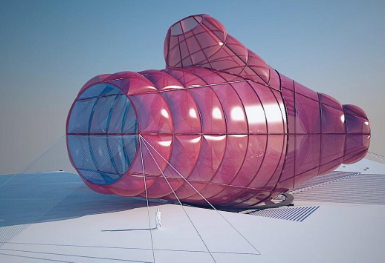
UCLA Architecture and Urban Design Neil Denari, 2017
Taking references of this type of architecture, we were able to figure out the best fits structurally for the territory. The variability in use means that gyms, fields, museums, co-working space, restaurants, etc can be implemented depending on the typology and season. From a scientific perspective, synergies may also arise in these HUBs related to collaborative research.
Antarctic HUB is a project of IAAC, Institute for Advanced Architecture of Catalonia developed in the Master in City & Technology in 2019/20 by
Students: Andrew Saltzman & Jochen Morandell
Faculty: Manuel Gausa & Nicola Canessa